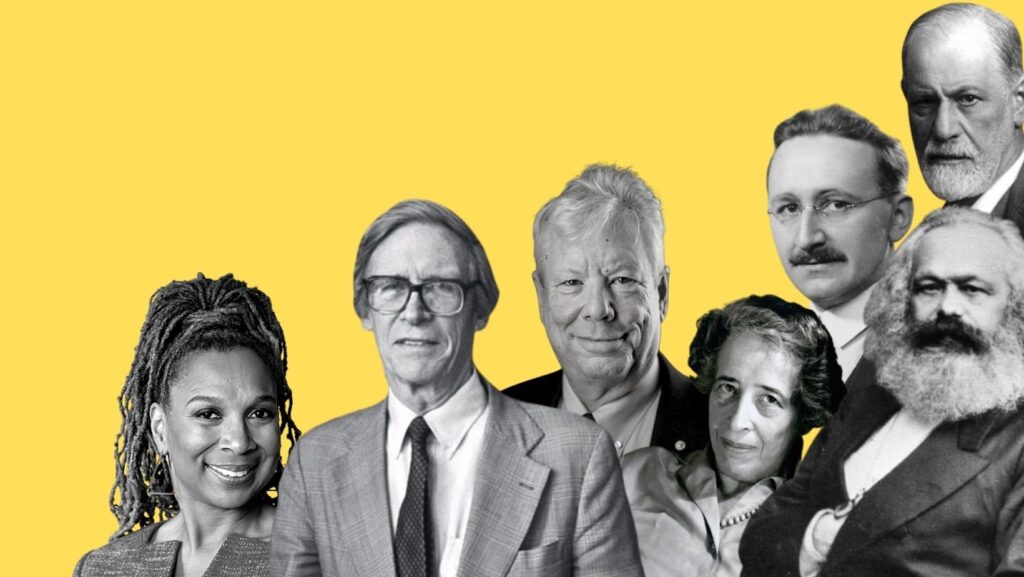Modernday businesses and workplaces reflect new socio-cultural realities. A diverse, multi-generational workforce comprising Boomers, Millennials, Gen-Zs are all cohabiting the (virtual?) workspace. A kaleidoscope of work patterns and methods has emerged in the last two years. Technology is becoming central to work, irrespective of the business. On the one hand, social media has democratised the internet empowering every employee with a voice. Switching a job is becoming far easier than before. Use cases are changing and business models are becoming obsolete. There is chaos like never before.

There is a need to re-write the playbook. Managers, leaders and employees – all need to adapt and change in order to survive. What could aid this transition? This week I make a case for social sciences at the workplace to manage this chaotic post-pandemic world.
Social sciences study the relationship of individuals with the greater environment and society that they inhabit. Particularly – Economics, Political Science, Psychology, and Sociology. These subjects offer practical insights which could influence management styles, corporate philosophies and work policies of the future.
Economics
Economics is central to business. It is what determines success and failure of the firm. A sound knowledge of economics can help make better people-related decisions. The knowledge of business cycles helps to make better hiring decisions and influences workforce planning. Consumer choices influence compensation decisions. After all, the classical wage theories are grounded in the overall theory of the firm – how it distributes wages determines its surplus and its eventual growth. Understanding the role of creativity and the need for freedom as spoken by Hayek helps to decentralise and empower decision making for welfare of the firm. Behavioural economics made popular by Richard Thaler has many applications at the workplace especially for influencing desirable workplace behaviours.
Political Science
This one maybe a surprise. But there is a case for it. How the political landscape transforms businesses is well known, but workplace behaviours are also influenced by political undercurrents. An astute understanding of power dynamics can help one to better navigate high pressure political situations at work. Moreover, concepts such as “organisational citizenship” (the level of dedication displayed towards one’s organisation even in absence of formal rewards) are closely linked to the ideas of Citizenship as propounded by Aristotle. Alejo Jose ́ G. Sison argues in an article that more participation in organisation governance leads to better citizenship of the “corporate-polis”.
Designing policies for employee welfare is a key task of leaders which can’t be based on their biases or common sense. John Rawls’s ideas of justice serve as an important directive, especially for policies on employee welfare and freedom. Corporate fraud, malicious actions, wilful negligence are all explained very simply by the “banality of evil” as propounded by Hannah Arendt. In the world where, environment, sustainability and governance (ESG) are no more keywords but influential markers to business operations, these ideas become paramount.
Psychology
Psychology is the obvious choice. However, a scientific understanding is essential. Common sense in psychology, like most other social sciences, is not always accepted. The reason why an individual behaves in a certain manner is tied to factors beyond one’s observations. Good understanding of human nature can make one more empathetic to the needs of others. This contributes to healthy relationships. Workplace trauma, stress and burnout and bullying have become major determinants of one’s mental health. The renewed focus on mental wellness is welcome but eliminating causative factors will be the next frontier. Whether one adopts a Freudian lens or the Jungian one, Psychology continues to provide answers to the questions around workplace behaviour.
Sociology
Sociology was definitely a surprise addition to our course at TISS. I was fascinated to see the influence of the workplace on us. I also realised the importance of “sociological imagination” in our daily lives – situating one’s actions in the greater scheme of things. Adopting a sociological lens while viewing the workplace can be very rewarding. For instance, understanding intersectionality – a concept given by Kimberle Crenshaw, helps us to structure Diversity, Inclusion and Equity initiatives better. Turning to Marx in times of the great resignation, reveals how “alienation” is not limited to the shopfloor. The pandemic has created feeling of disconnectedness amongst colleagues and workers. A disruption of norms of the workplace could further contribute to what Durkheim calls – “anomie”. Further, if you feel that your organisation has become too wound up in rules, then Weber would diagnose it as being trapped in the “iron cage of rationality”.
The nature of social sciences makes it simple and daunting at the same time. But if one were to warm upto the idea, it can transform the way one views the world, especially the workplace.